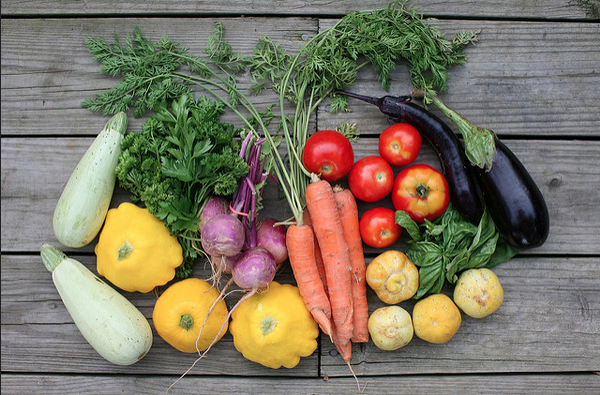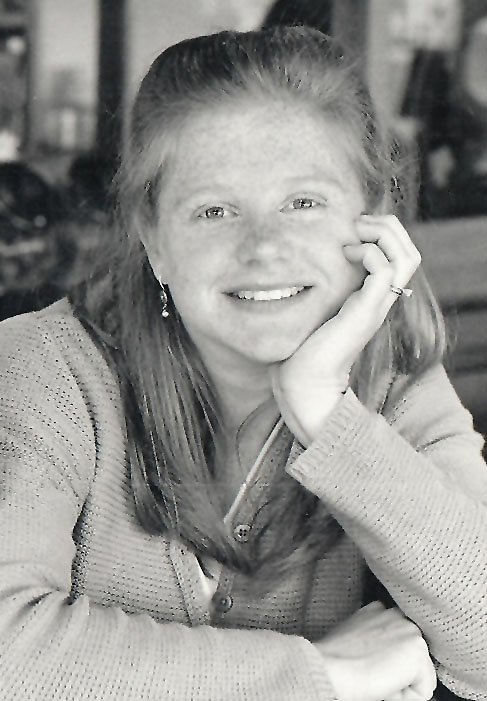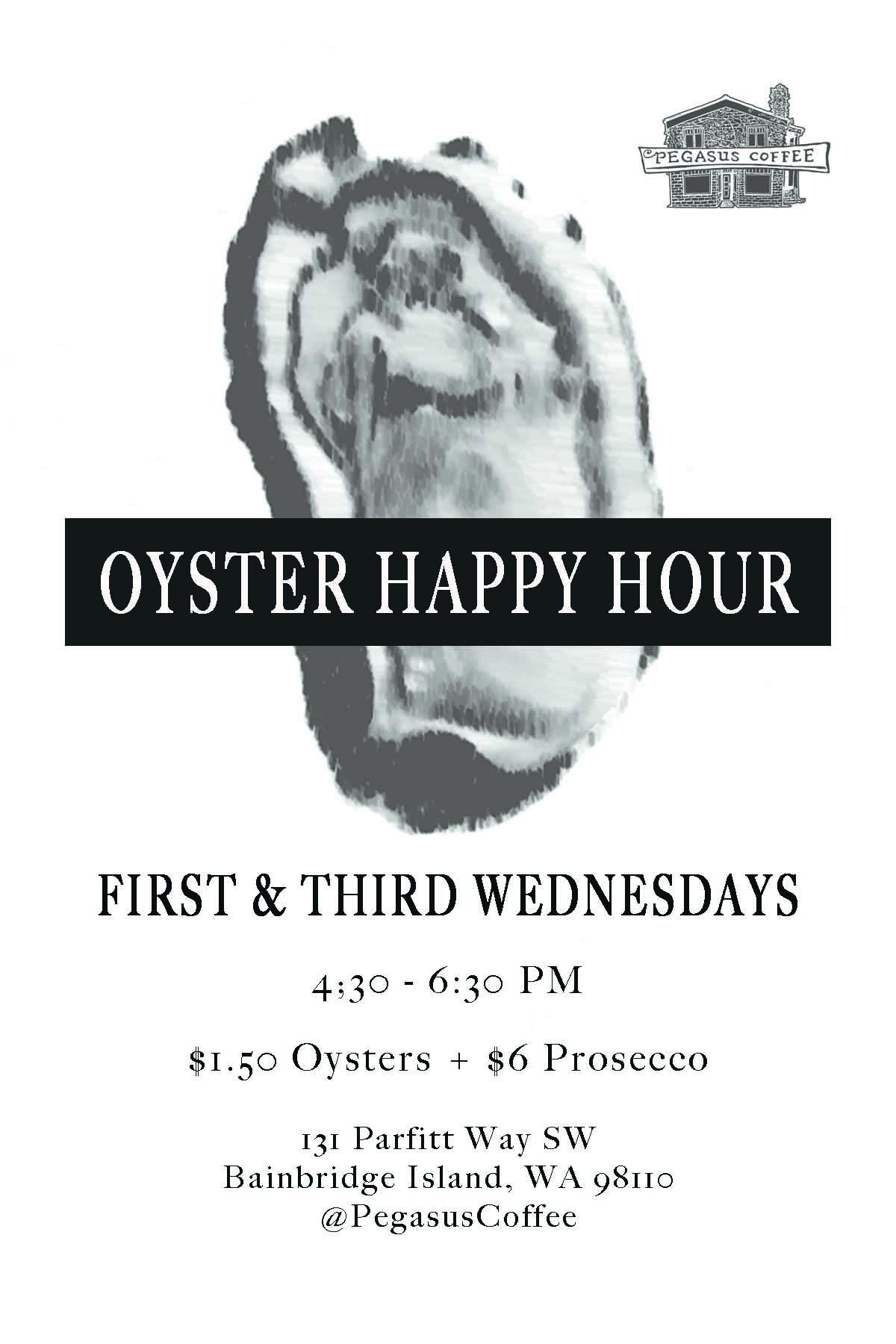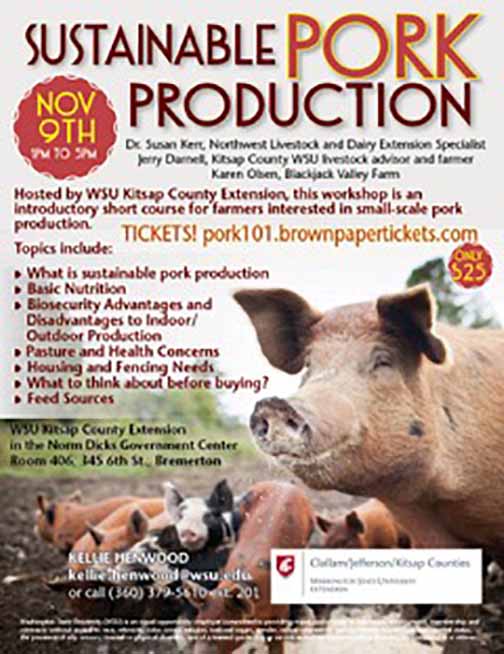Kitsap’s Own Local Food Trust
April 19th, 2017
Nothing is as universal or as personal as food – we all eat, we are all consumers.
Strong local food systems positively impact every aspect of local economies and culture.
By supporting local food you make an enduring investment in your community.
That said – we welcome The Local Food Trust!
Their mission is to grow culture and community through strategic investments in our local food system. Initial target areas are the Kitsap and Olympic Peninsulas.
Teamed with organizations in the food industry and through the Trust their hope is to pair them with grants and investments from foundations, corporations and individuals. These investment will help recipients build and sustain their work and allow them to connect and collaborate with their peers all along the food system.
The Trust was formed last October as a non-profit organization. Their partners include the Kitsap Community Foundation (fiscal sponsor), Washington State University Extension Program, and 1% for the Planet sponsorship of Grounds for Change, a local coffee roaster with global reach.
Now all they need is YOU!
Please share the mission, vision and goals of the Trust with others.
If you know of an organization, individual, a project or program that could benefit from The Trust, encourage them to apply for funding support.
You can make a tax deductible donation – join and become a food matchmaker and ambassador. They are participating in the Kitsap Great Give on May 2nd – another great opportunity to donate.
To receive more info contact Patricia Hennessey at info@supportlocalfood.org
New Year, New Service Charge
January 5th, 2017
Early in the Pub’s 25-year history the owners followed a straightforward tip out system to make sure that, on a busy night, the entire staff earned a fair share of the night’s earnings.
At most restaurants, servers and bartenders who receive tips, rake in much more money than the cooks and kitchen staff, who rely on an hourly wage. To spread the money more equitably, the Pub staff pooled tips at the end of the night. The money was then distributed using a system that everyone on staff understood. The tip-pooling practice was believed to foster a sense of teamwork, resulting in better service for the patron.
By 1998, the staff had grown quite significantly in both the front and back of the house. The Pub replaced tip-pooling with a tip-sharing system. In that system part of the server’s tips were distributed to the kitchen staff – the cooks and dishwashers – based on a percentage of the server’s sales.
Both systems appeared to be legal, as far as the state and federal governments defined the law. But now, thanks to a February, 2016, decision reversal from the Ninth Circuit Court of Appeals, hundreds of Washington restaurateurs who employ similar tip-sharing systems are compelled to change how they pay workers to ensure they don’t get sued.
“Welcome to the debate around tip sharing, the latest flash point in the critical discussion the restaurant industry is having around its flawed labor system,” repeats Pub co-owner, Jeff Waite.
Following the February decision, in Washington (and six other states) cooks and dishwashers are now prohibited from participating in tip-pooling schemes. Additionally, the U.S. Department of Labor announced that it would now enforce its tip-sharing prohibitions in all 50 states.
With the given risk, financial consultants and industry experts are instructing most restaurants to stop sharing tips with the kitchen and simply raise wages instead. Raising wages, though, means raising prices — and Waite frets over how much he can raise the price of a burger. “The worst part about it,” Waite goes on, “is I don’t know who this ruling reversal protects.”
Over the past 18 months, in the Seattle Area, where restaurants are booming and minimum wages are already mandated at $15 per hour, many multi-unit restaurateurs have been testing new ways to un-break the system. Introducing an automatic gratuity charge or making menu prices service-inclusive are two methods that give business owners legal control over the money they bring in and distribute to staff. But those strategies result in much higher taxes, and smaller operators are terrified diners won’t take to no-tipping models.
Regardless, many of the most popular Seattle restaurants, and the ones getting much of the press, have instituted a 20 percent service charge on the total bill.
Waite and his staff have devised a hybrid system. “We felt preserving the best parts of both a service charge, for staff wage equity, while keeping a tipping model, for familiarity, was prudent at this moment in time” he explains. Albeit, a much smaller service charge, 5% of the total bill, before retail sales tax, will be collected and distributed among the kitchen workers. A tip line will also be included on the guest check for patrons to add the customary gratuity at an amount that the patron is comfortable with. The tips from the tip line will be kept by the serving staff in accordance with the February ruling. Patrons are reminded that tipping on the 5% service charge (or sales tax) is not necessary.
Waite freely admits that to many, the change will only seem like semantics. “But that is the goal – despite the legal ramifications, our desire is to keep the average guest check from being inflated too much.”
“But if the result is that I have to spend a bunch of time getting involved in the intricacies of defending our tip pool, it’s not worth it. We want to focus on serving great food and drink.”
Pub Reaches 25 Year Milestone
December 27th, 2016
Getting Started
“The whole neighborhood was against it,” explains Jocelyn, whose parents opened the Harbour Public House in 1991. Neighbors remembered the Bloody Bucket, a “rough bar” that had been down the street, and they didn’t want to deal with that headache again. But Jocelyn’s parents, Jim and Judy Evans, dreamed of opening a pub for years—inspired by Jim’s English heritage—and they were determined.
The couple had moved to Seattle in 1966 after Jim was offered a job teaching civil engineering at the University of Washington. The appeal of waterfront property and the cheap land prices of those days quickly brought the couple across the water to Bainbridge Island.
Both Jocelyn and her brother Chris grew up on the island. And after a brief stint of the family living on a sailboat (Jim and Judy also dreamed of sailing across the world with the whole family one day), the couple bought the property where the Harbour Public House sits today.
There were two homes on the land and years later one of them would be remodeled into the pub. It was an old house; with floors so slanted that Jocelyn remembers being able to let go of her toy car in one corner of the house and watch it roll across the floor to the other.
The idea of opening a business stayed with Jocelyn’s parents as they watched their kids grow up. And in the 1980s, they began the process of renovating the house into a pub.
All in all, it took about five years before the doors opened. The first step was getting the necessary permits, which was difficult since a year-long teaching job took Jim and Judy to New Zealand during the first part of the process. Although she was just a senior in high school, Jocelyn was tasked with going to the required city council meetings on their behalf and listening to the ‘Bloody Bucket’ worries of neighbors.
Eventually, the permits were granted and construction began. By this time, Jim was back at the UW and decided to take advantage of his class of civil engineering students. He posed the question of how to remodel his old home into a functioning bar as a final exam. The winning design was used in the actual building renovations.
The Early Days
After high school, Jocelyn went to college in California and spent some time traveling abroad in Italy and England. When her senior year rolled around, her parents still hadn’t opened the pub. They were stalling. The realities of their dream business was daunting.
But Jocelyn insisted they had to bite the bullet and give the pub a shot. And finally, during her senior year of college, they opened it. She came to help them with their first few weeks of operation, and then returned to school.
Not long before her graduation, Jocelyn got a call from her parents asking her to move back to the island to manage the pub. As it turned out, neighbor’s liked the Harbour Public House. It was nothing like the Bloody Bucket nightmares they’d imagined. But Jim and Judy didn’t have experience managing a bar, and they needed help running the place. Jocelyn wasn’t interested. But they kept calling.
“I had this mental block about living in my hometown,” explains Jocelyn about her apprehension to move home to run the pub.
In the end she agreed to come for one year. When that was up, she agreed to stay for one more year. And when that was up…
“I had applied to law school,” she explains. She had every intention to leave. The past couple of years had been difficult showing up as the owner’s daughter and managing a large staff of people — most older than she was.
But at the same time, she was surprised at how much she enjoyed the life she’d built on Bainbridge.
“Until I started working at the pub, I always considered myself an introvert,” she explains. “When I started working at the pub I could make jokes and people thought I was funny. That had never been the case before.”
Jocelyn enjoyed customer service, managing staff, and being a part of the Bainbridge community. It also didn’t hurt that she had recently met her future husband, Jeff, and wanted to stick around to see how their relationship would unfold.
After a little deliberation, she “gave in to the inertia and stayed.”
Part of the Community
Jocelyn worked full time at the pub for 23 years. She got married at the pub. She’s met some of her best friends at the pub. She’s watched as friends and staff members have met their future husbands and wives there too.
“My favorite thing about owning the pub is the community aspect,” says Jocelyn. “We’re living in a community and we’re an intricate part of it.”
And when they had their first child, Jeff and Jocelyn were able to split the business responsibilities, allowing Jocelyn to be a full-time mom with a full-time career without putting her kids in daycare.
“It was the best thing I ever did,” Jocelyn says about her decision to embrace the opportunities she had on Bainbridge.
Contributed by Liz Pleasant
HORSE Project, Update – 6 Month Extension Approved
December 21st, 2016
The mechanical HORSE is temporarily employed adjacent to our parking lot. Initially permitted for six-months, the Pub was able to negotiate one six-month extension to keep the unit operating for demonstration purposes. The self-contained HORSE, which stands for High solids Organic waste Recycling System with Electrical output imitates other biological ruminants (barnyard animals). When optimized, it steadily “eats” or otherwise diverts over 100 pounds of our carbon-based wastes from our waste bins.
Partnered with Puget Sound Energy and Impact BioEnergy, the Pub’s HORSE pilot demonstration is in full swing. Having arrived in September, 2016, the unit has been put into full production mode over the past few months. Because this is the first unit using nothing but food waste, the Pub is documenting the practices that work best with its particular blend of food wastes and volume.
During startup, the Pub and the engineers from Impact BioEnergy have been met with a few challenges. Each one has been overcome, so far, and the unit is operating as expected.
As of printing, we are generating 2.7ft3 of biogas (methane)per lb. of food waste (currently 3.3 MMBTU/ton of food waste) – the goal is to come as close to 5.7 MMBTU/ton as possible. When we can reach 5.7 MMBTU/ton of food we will be able to say “1 ton of food scraps is yielding the equivalent energy in 1 barrel of crude oil.”
The goals of this particular demonstration have remained the same:
1. Demonstrate to the community that this project and ones like it are viable.
2. Inspire a public dialogue about resource recovery through coordinated projects like this one.
3. Develop strategies for locating and funding permanent projects.
This just in… Oyster Happy Hour at Pegasus
December 2nd, 2016
Perhaps this will help you out when sorting out your feelings about last week’s election – Jonathan Pie
November 14th, 2016
WSU-Kitsap offers Pork Production 101
October 20th, 2016
No Horse’n Around
September 28th, 2016
Partnering with PSE and Impact BioEnergy, the Pub has set up a HORSE pilot demonstration (more detail at Fresh Connections). Because composting can be both an art and a science, we’ll be attempting to discover the practices that work best with our particular blend of food waste and volume. The mechanical HORSE will be temporarily employed adjacent to our parking lot for about six-months – imitating other biological ruminants (barnyard animals). We expect that it will “eat’ or otherwise divert over 100 pounds per day of our food and carbon-based wastes from our waste bins.
Also, of great interest to our partners, the electrical output will be monitored and analyzed. Remember watching Doc Brown power up his time-travel machine with banana peels among other items scavenged from garbage in “Back to the Future II”? Well, that may be our new reality. We hope to power part of our electrical use during the pilot phase of the project with the same food waste.
See how it works on YouTube
We’ll be keeping you updated here over the next few months.
Oh, and being Bainbridge Island, even though the project is community-based, it still has its detractors. So, if you think this is a cool project, keep the positive comments coming!
Mindful Farm-to-Fork Dining Experience at Dayaalu Center
July 28th, 2016
The Dayaalu Center, one of Bainbridge Island’s beloved yoga and holistic body healing centers, will host an enchanting communal meal beneath the stars on Saturday, July 30th from 7 – 9 PM, as they join forces with the green Quince Blossom Kitchen to serve a four course, farm-to-fork dinner on their patio. Both of these holistic businesses focus on transforming body and mind through various mediums, ranging from plant-based meals prepared with love, to yoga, music, and meditation. The convergence of their missions, along with the missions of local farms, will culminate in a conscious dining experience that connects you deeply with your community, the land, and prana, the life force, which flows through these plants and transfers into your body through conscious consumption.
Quince Blossom Kitchen’s Emily Abby Klein has been seasoned in many of Seattle’s fine restaurants and is an up-and-coming caterer with a focus on simple and elegant plant-based meals. She will be utilizing the summer harvests of the island’s local farms, abundant in fruits and vegetables of all varieties. By attending this farm-to-fork dinner, you will expand your culinary prowess of vegetarian meals and open the possibilities of healthy, clean eating, while supporting local farmers, dedicated to stewardship of the land and the practice of ecologically sustainable farming that utilizes natural landscape and nature’s rhythm and cycles.
In addition to expanding your community and rejuvenating your relationship with plant-based food, the Farm-to-For Dinner with Quince Blossom Kitchen is expanding the scope of their mission by promoting egalitarian access to healthy, organic food for all, in partnership with downtown Seattle’s Green Plate Special. A portion of the proceeds from the evening’s dinner will be donated to this youth-centered educulture organization, bringing a hands-on farming experience to fourth- to eighth-graders. At Green Plate Special, kiddos learn about basic food and nutrition and grow from there, planting, growing, harvesting, cooking, and eating their own vegetables! In an urban setting—particularly low-income—access to organic food is difficult. This organization provides crucial gardening, health, and cooking skills that empower and inspire a healthier youth and sustainable future.
This joyous event is also meant to bring acquaintances and even strangers together around a table to celebrate in the space we call “home” with laughter, storytelling, skill-sharing, and general elation. The Dayaalu Center guides many on the path to mindfulness, raised consciousness, meditation, yoga and pilates, sound healing, and aryuvedic care, with a desire to “help us hear, see, smell, taste, touch, and move in ways that cultivate AWE-filled moments, compassionate engagement with life, and connections to self and others,” according to their site.
If you want to participate in this conscious community meal, register here. Seats are $50 per person, which includes gratuity and taxes, as well as your contribution toward Green Plate Special. For four courses of local, organic food, prepared with love for you and your community, this is one meal you don’t want to miss. Email Jeny at jeny@dayaalucenter.com or Emily at quinceblossomkitchen.org with additional questions.




